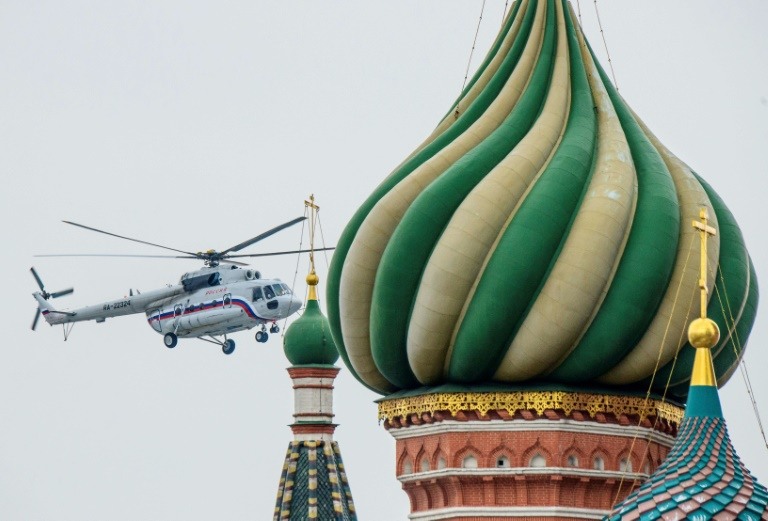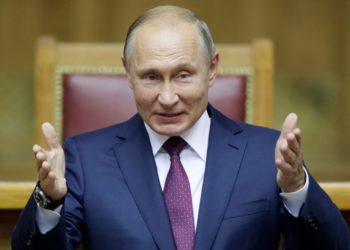Russian officials will be able to fine or block online media outlets for publishing news they deem “fake” under a law approved by lawmakers Wednesday.
Rights groups say the move amounts to censorship.
Russia’s lower house of parliament, which is overwhelmingly dominated by the pro-Kremlin United Russia party, voted in favor of the bill in the key second of three readings.
‘Unrest’
The law would allow prosecutors to decide what amounts to “fake news” and gives a media watchdog the power to demand an outlet delete the information.
Websites that fail to comply would be blocked.
Fines could reach 1.5 million rubles (over $22,700) if the infraction leads to grave consequences like death or rioting.
Fake news disseminated via the internet can “lead to mass unrest” and undermine state security, the bill’s authors say.
In February, Maxim Borodin published a series of bombshell reports about the secret presence of Russian mercenary forces in Syria. On Sunday, he died, following a mysterious fall from his fifth-floor balcony. https://t.co/LiXwxu6VSe
— VICE News (@VICENews) April 16, 2018
Lawmakers in Russia first began to speak of the need for such a law after a blast on New Year’s Eve killed dozens in the industrial city of Magnitogorsk.
Several versions of the story appeared, with officials saying it was a gas explosion but some independent media suggesting it was a terror attack.
The Islamic State group claimed the alleged attack two weeks after it occurred, leading to public confusion.
Blow to Press Freedom
Critics say the bill is vaguely worded and would have large scope for abuse, further complicating the difficult and sometimes deadly work of opposition journalists in Russia.
“Even more censorship!” the Reporters Without Borders media rights organization wrote on its Russian-language Twitter.
“Authorities will now block websites and (social media) accounts without trial,” wrote opposition politician Vladimir Ryzhkov.
In another controversial bill, the Duma backed punishment for “offending state symbols.”
This would allow the media watchdog to block content that “expresses overt disrespect” to Russian authorities.
Both measures are likely to pass their third reading later this week before being sent to the senate and signed off by President Vladimir Putin.
More on the Subject
The effects of President Donald Trump’s persistent attacks on the press are being felt beyond the U.S. border.
According to experts, the president’s efforts to demonize the press and undermine its credibility are not only leading to concerns over journalists’ safety in the U.S., but are emboldening leaders around the world to crack down on press freedoms.
“President Trump’s rhetoric, in addition to creating a new climate in the U.S. that puts journalists at risk, has also provided cover and a justification for foreign leaders who have been repressing journalists,” Peter Sterne, senior reporter at the Freedom of the Press Foundation, told The Globe Post.





















